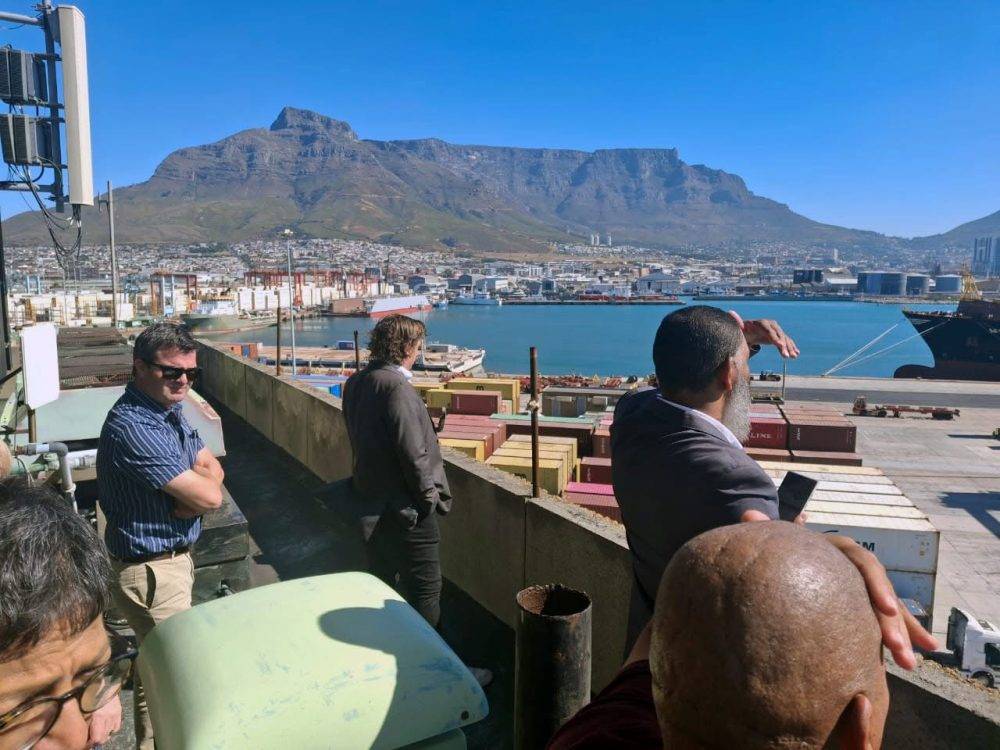
The International Commodity Summit 2025 (ICS2025) has welcomed the decision by Cape Town Mayor Geordin Hill-Lewis to support the Port of Cape Town’s inclusion in the government’s Request For Information (RFI) process.
The ICS2025 notes that this initiative aimed to gauge private sector interest in partnerships could enhance the efficiency and operations of the port and freight rail lines- which will attract foreign investment and boost the South African economy.
Mayor Hill-Lewis states that the city is relieved to see the Port of Cape Town’s inclusion in the government’s testing of market appetite for private sector involvement.
“The City has been making this case to the national government for some time, and I am grateful to Minister Barbara Creecy for following through on her commitment”.
“This is a positive step towards enabling the level of infrastructure investment and expertise needed to co-run the port successfully”, said Lewis.
The mayor highlighted the port’s current inefficiency, noting that according to the World Bank, it ranks as the least efficient globally, hindering regional economic growth and job creation.
“We need to urgently see private investment and management in the Cape Town port to release this handbrake and speed up job creation in Cape Town,” Lewis said.
The potential benefits of private partnerships at the Port of Cape Town are significant. Research from the Western Cape Department of Economic Development and Tourism estimates that such participation could generate an additional R6 billion in exports, create around 20,000 jobs, and yield over R1.6 billion in additional tax revenues within five years.
Mayor Hill-Lewis emphasized the urgency of the process, praising the government’s timeline for moving to the formal procurement phase by August 2025. He also acknowledged the Development Bank of Southern Africa’s role in establishing a coordinating unit to facilitate these partnerships.
Alderman James Vos, the Mayoral Committee Member for Economic Growth, remarked on the need for major infrastructure investments to address operational challenges posed by wind at the port.
“When the port is unable to operate sufficiently, exporters are forced to divert their goods to other ports in Durban, Gqeberha and elsewhere at huge costs,” said Vos.
Vos expressed optimism about the RFI process leading to a full-scale partnership with the private sector, stating, “The private sector has the services and the expertise and have shown they are willing to assist as much as possible. The City stands ready as a partner to expedite any infrastructure investment within our local government purview.”
Vice President of Hibarri, Cherrylee Samson notes that the city’s new acquisition will attract investment and expertise.
“By inviting private sector participation, the RFI signals an opportunity for investors to contribute capital, expertise, and innovative technologies to the port, potentially leading to upgrades and improvements.”
“The RFI could be a key step in revitalizing Cape Town’s struggling container terminal, addressing issues like congestion and capacity constraints”, said Samson.
Samson also states that The RFI also allows for the exploration of private sector participation in renewable energy projects at the port, contributing to sustainability efforts.
Ports are extremely important to the global economy, and it is important to note that 70% of global merchandise trade by value passes through a port.
The Port of Cape Town included into the RFI will without boost the city’s economy, and lay a foundation for global engagement on trade and investment at the ICS2025 in July. For further information on The International Commodity Summit 2025, including registration details, sponsorship opportunities, and the full agenda, please visit https://internationalcommoditysummit.com



